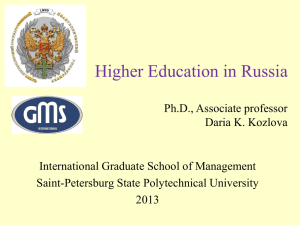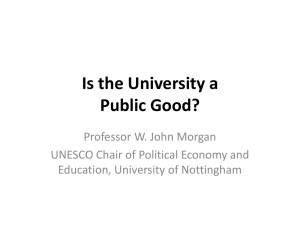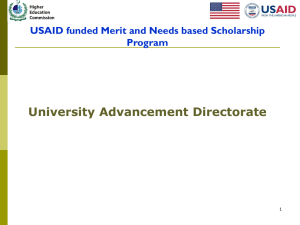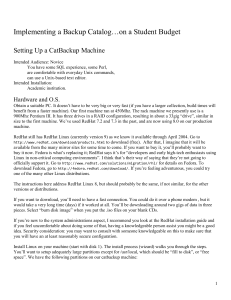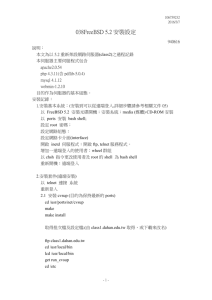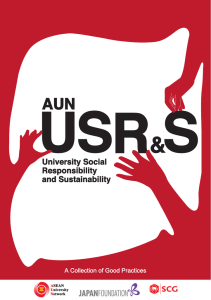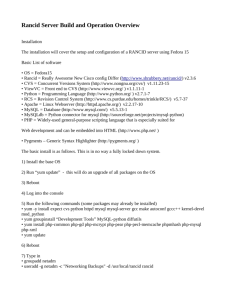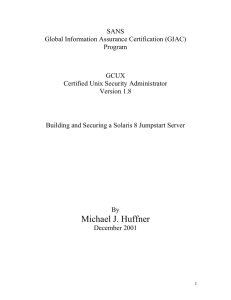university social responsibility (rsu) bases and
advertisement
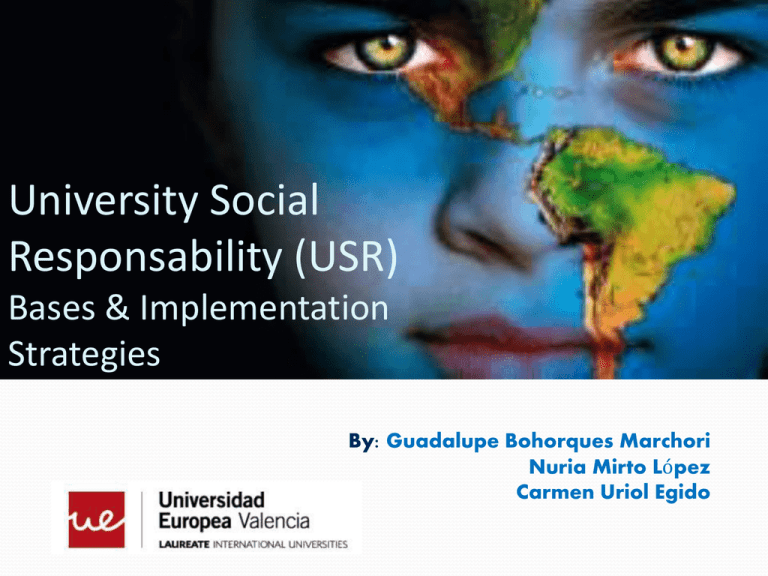
University Social Responsability (USR) Bases & Implementation Strategies By: Guadalupe Bohorques Marchori Nuria Mirto López Carmen Uriol Egido “Education is the most powerful instrument that we have to create a better world “ (Dalai Lama) UNIVERSITY SOCIAL RESPONSIBILITY (USR) BASES AND IMPLEMENTATION STRATEGIES Index: 1-What is RSC? 2-What kind of responsability Universities should have? 3-The two basic points 4-What are the strategies for implementation in the universities of USR? 5- Conclusions 1-What is RSC? If the European Commission Green Paper (2001) defined CSR as "the voluntary integration by companies of social and environmental concerns in their business operations and in their interaction with their stakeholders" then we could define the USR as a voluntary integration of universities in social and environmental concerns, and commitment to improvement. UNIVERSITY SOCIAL RESPONSIBILITY (USR) BASES AND IMPLEMENTATION STRATEGIES 2- What kind of responsability Universities should have? The University, as a social agent and as a generator and transmitter of knowledge can and should contribute to the transformation of society in "human society". UNIVERSITY SOCIAL RESPONSIBILITY (USR) BASES AND IMPLEMENTATION STRATEGIES 3- The two basic points: a) The responsibility of Universities as a public or private institution b) The responsibility of the University in the implementation of human values in their programs of studies. UNIVERSITY SOCIAL RESPONSIBILITY (USR) BASES AND IMPLEMENTATION STRATEGIES 4- What are the strategies for implementation in the universities (RSU) assuming that social responsibility implies a commitment? a) Education in values b) Research c) Participatory and transformative action d) Collaboration with other entities e) Communication between the network of universities f) Coherence with the values of the University g) Interaction with the labour market a ) Education in values It is necessary to develop a consciousness both teachers and students about the significance of social responsibility, through the knowledge of the current situation in the world and the basic legislation on the protection and guarantee of human rights. b ) Research In the field of research the work of both of undergraduate, postgraduate and doctorate students could be redirected toward projects with themes of social responsibility. It will be useful collaboration with national and international network of universities socially committed, allowing the exchange of experiences as well as the teamwork of students from different universities and disciplines. c) Participatory and transformative action: A team of volunteer students to practice carried out in public or private social entity, associations or NGOs will be created. These practices will be organized and supervised by a coordinator appointed for that purpose. Thus the student will have the opportunity of approaching reality and see first hand the social problems, being direct participant and becoming aware of their active role in settlement and transformation of reality. In addition, once done the internship period the student wild be encouraged to share their experience with their peers. d) Collaboration with other entities: It is important that the University signed agreements with different foundations, institutions or other competent universities in the field of the RSU, in order to promote the necessary actions to be part of the national and international network of socially responsible universities. e ) Communication between the network of universities: The network established with other universities, foundations or other competent entities in MSW will allow communication and exchange of experiences, resources and best practices, thus promoting the RSU deployment strategies. The fluent communication within the network will be essential to advance development and the promotion of responsibility that assume their components as actors of change in society. f ) Coherence with the values of the University: The USR committed throughout the University as a whole, all grades and all departments and services, thus implying a structural change, since it supposes to carry out an ethical management, committed to the social and environmental surroundings. Responsibility of all actors in the University, is from teachers, staff of different services, and students, meet the objectives of the USR. g ) Interaction with the labour market: Due to the global economic crisis the labor market is constantly changing, so it is important to establish channels of communication with the companies and professionals to determine the needs of the internal market, and to guide the training of students. It is indispensable to take account of the problems facing the society due to the economic crisis, and get professionals ready to address those social demands, finding an intermediate point between the demands of the labour market and society as a whole. EDUCATION RESEARCH ACTION COLLABORATION COMMUNICATION COHERENCE INTERACTION SOCIAL TRANSFORMATION CONCLUSIONS: USR affects to all sector both public and private and brings social, economic and environmental development. Universities are very important part of the social change and the future markets and they can give an influence in the company world when their students are part of the market. USR acts within an ethics framework that commits all social agents. USR means, to understand the need of create a new way of educating in human values make business and where the companies are part of the process of social and human change. Universities have the most powerful instrument throughout USR to transform society into humanity and to create a better world.



